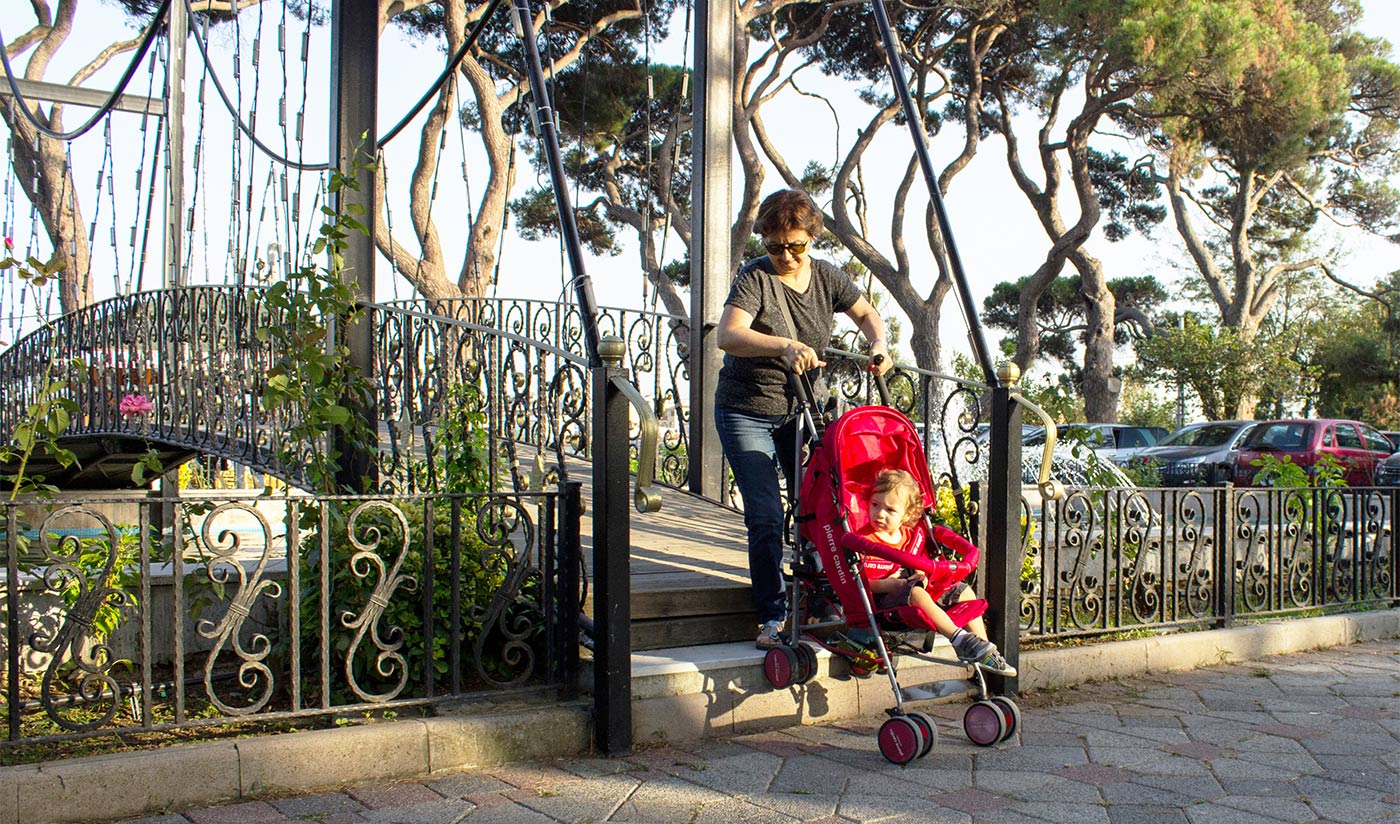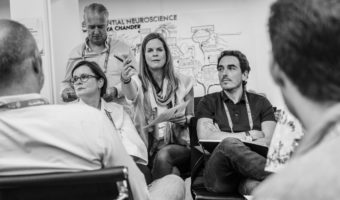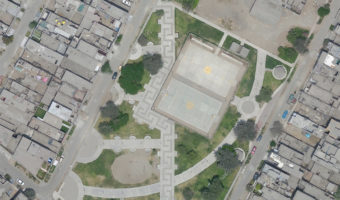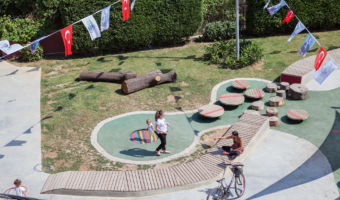Nearly a quarter of a million babies were born in Istanbul during 2017. The city has over a million children aged up to 4. When we at the Bernard van Leer Foundation wanted to develop an Urban95 strategy for Istanbul – Urban95 is our programme to improve city life for young children and their caregivers – we asked ourselves and our partners: where should we start?
Based on our previous experiences, we decided to strengthen the capacities of district municipalities. They provide a wide range of social services, including food banks, cash transfers, daycare, parks and playgrounds. Health services are centrally administered. We needed to begin by improving our understanding of what services are available where, and in which neighbourhoods the need is greatest.
We contacted Kadir Has University’s Istanbul Studies Centre (ISC) to ask: where are the most socioeconomically vulnerable young children in Istanbul? They prepared a map combining data on age group population per neighbourhood with data on property prices, as a proxy indicator for income. We asked the Turkish Economic and Social Studies Foundation (TESEV) to collate information from district municipalities about existing services and infrastructure, such as where daycare centres are located and how many children they look after, where parks are located, and what play equipment the parks have.
Most of the municipalities agreed to provide this data – and overlaying it with ISC’s district maps enabled us to clearly identify the neighbourhoods where current services and infrastructure lag the furthest behind local needs. These maps became an innovative decision-making tool and generated significant interest, with representatives from 25 of Istanbul’s 39 municipalities attending the launch event in 2017. They are available online, in both Turkish and English.
We developed partnerships with four district municipalities – Beyoğlu, Maltepe, Sarıyer and Sultanbeyli – to work on two pilot interventions: developing home visiting services to support parents, and improving green public spaces.
Developing low-cost parent support interventions
We asked Boğaziçi University for help in developing a simple, effective and low- cost parent support intervention. They formed a team of academics from the psychology, education and economics departments, and conducted focus groups with caregivers – mostly mothers – with young children. Together we decided to base our home visiting programme on the established Reach Up and Learn methodology.
The University of the West Indies, which developed the Reach Up curriculum, trained the team for 10 days. Based on what we learned from the focus groups, we added visits from the sixth month of pregnancy and information on nutrition and maternal depression. The team developed training material for home visitors and supervisors, manuals for toy making and a curriculum for 73 visits – with a visit every two weeks – focused on promoting more frequent and higher- quality caregiver–child interactions.
Each partner municipality sent at least three home visitors and one supervisor to be trained: we covered the costs of training and supervision, while the municipalities are covering the costs of the staff, who were either newly employed or recruited from departments such as welfare, daycare and social services. The municipalities used the maps as a starting point to identify families for the pilot, and for a control group. The target for the pilot phase was 120 families in each municipality – 480 in total – with one home visitor covering 40 families and visits lasting around 45 minutes.
‘We developed partnerships with four district municipalities to work on home visiting services and improving green public spaces.’
The academic team developed an evaluation framework using ASQ, a Turkish- language development test and mental health measurement for the caregivers. The evaluation will also project the economic difference the programme makes for families, and compare it against the cost of scaling up. We hired a field research company to collect data from the 480 families and another 480 in the control group, with data being collected during pregnancy and when the child is 9 and 18 months old.
Final results are not yet in – the pilot started in early 2018 – but the data collected at 9 months look promising, and anecdotal feedback has been very positive. One mother, for example, reported that she is looking into her newborn son’s eyes and talking to him while breastfeeding, which she did not do for her first two children. Home visitors and supervisors report feeling motivated by the transformations they are observing.
We are already working with municipal leaders on possible plans for scaling up, which they can integrate in their municipal strategic plans if the final evaluation is positive. In parallel, we have been working together on improving outdoor play spaces for young children and caregivers in the municipalities.
Green public spaces
Istanbul is a city of 15 million people, famous for traffic jams and air pollution, and needs more parks and public spaces for young children and caregivers. We agreed with partner municipalities that they would fund park improvements if we covered design-related costs. We contacted an architecture company, Superpool, and explained that we wanted to go further than just building playgrounds, instead creating spaces that will help young children to develop and be inviting for caregivers to spend more time.
Superpool set out to learn about children’s physical and cognitive development during the first three years, and compiled a range of simple ideas to respond to these needs. Working with Kadir Has University Arts and Design Faculty and StudioX of Columbia University, they organised study visits to Copenhagen and cities in the Netherlands where they and leaders from partner municipalities could observe some ideas in action.
Superpool has now developed designs for public spaces allocated by each of the municipalities, which are currently developing budgets and work plans.
The transforming power of young children
Istanbul95 has been highly motivating for our partners, with much enthusiasm for expanding the reach of the work. Kadir Has University, for example, has developed the first Masters of Arts programme dedicated to urban design for young children and caregivers. We have started to work with Boğaziçi University on a local adaptation of the Boston Basics campaign, with messages encouraging parents to play and interact with their children.
As a father of two young daughters, I have experienced on a personal level how focusing on children’s development transforms your ways of thinking – how you learn as they grow, and constantly evolve your ideas about what you should be. It is exciting to see that the same thing can happen across a city.



